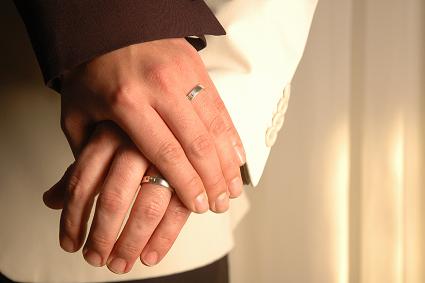|
| |

A civil union is a recognized union similar to marriage. Beginning with Denmark in 1989, civil unions under one name or another have been established by law in many developed countries in order to provide same-sex couples with rights, benefits, and responsibilities similar to those enjoyed by opposite-sex couples in marriage. In some jurisdictions, such as Quebec and New Zealand, civil unions are also open to opposite-sex couples.
The terms used to designate recognized same-sex unions are not standardized, and vary widely from country to country. Unions that may be similar to or synonymous with civil unions include civil partnerships, registered partnerships, domestic partnerships, significant relationships, reciprocal beneficiary relationships, "life partnerships" (Germany), "stable unions" (Andorra), "civil pacts" (France), and so on. The exact level of rights and benefits also varies, depending on the laws of a particular country.
Most civil-union countries recognize foreign unions if those are essentially equivalent to their own; for example, the United Kingdom, whose civil partnerships are nearly identical to marriage, lists equivalent unions in Civil Partnership Act Schedule 20.
As used in the United States, the term civil union connotes a status similar to marriage for same-sex couples; domestic partnership, offered by some states and municipalities, generally connotes a lesser status with fewer benefits, though this may vary.
The first civil unions in the United States were enacted by the state of Vermont in 2000. The federal government does not recognize these unions, and under the U.S. Defense of Marriage Act (DOMA) of 1996, other U.S. states are not obliged to recognize them. By the end of 2006, Connecticut and New Jersey had also enacted civil union laws; furthermore, California's domestic partnership law had been expanded to the point that it became practically a civil union law, too. The same might be said for domestic partnership in Maine and domestic partnerships in District of Columbia.
Since 2005, both New Zealand and the United Kingdom have offered civil unions similar to marriage nationwide, although in the UK they are termed civil partnerships. As of May 2007, only five nations (The Netherlands, Belgium, Canada, Spain, and South Africa) offer full same-sex marriage. The U.S. state of Massachusetts offers state-wide same-sex marriage.
Many people are critical of civil unions because they say they represent separate status unequal to marriage ("marriage apartheid"). Others are critical because they say civil unions allow same-sex marriage by using a different name. |
